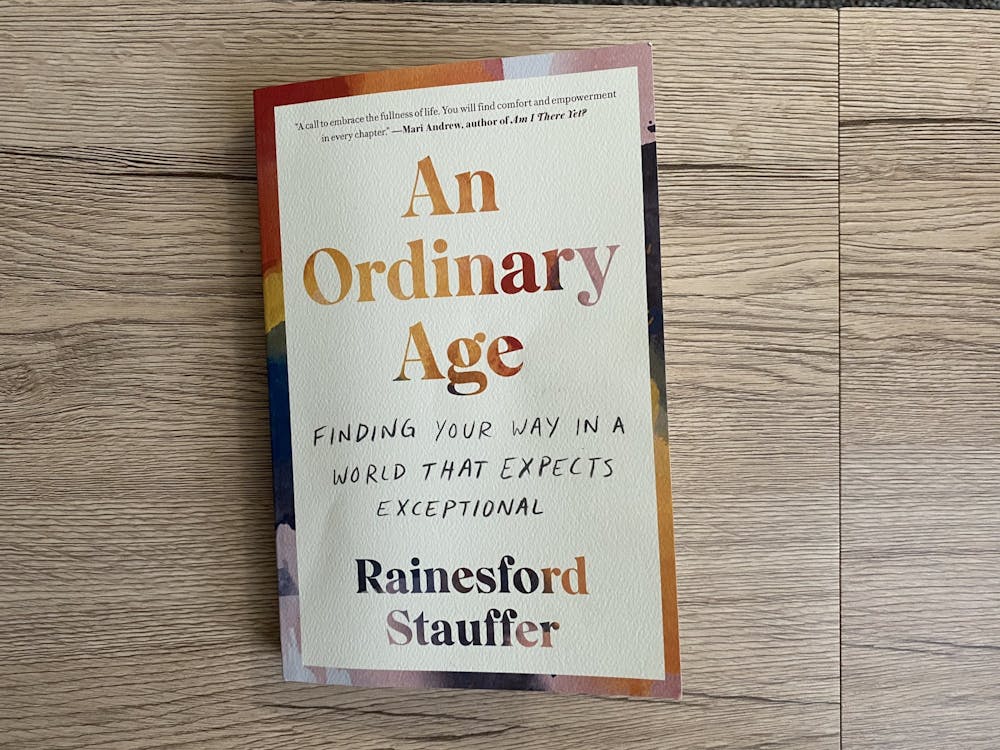I’ve spent a significant portion of this hellscape year simply trying to put it into words, and the most apt description I can offer is this: I feel like I’m perpetually juggling oranges. I’m seconds away from seeing them all drop to the floor, yet the world keeps tossing more fruit into my lineup.
I started off with a manageable number of oranges — let’s say three. One orange is school, one orange is work and one orange is a personal life. I’m no professional juggler, but how hard can three oranges be? Now, we throw in a fourth: friends, and a fifth: family. A sixth: a second job. A seventh: an ongoing pandemic. An eighth: other people’s expectations. A ninth, a 10th, an 11th, a 12th. I’ve spent this year moving oranges as fast as I can because I assumed this comically accurate lifestyle was my only option.
Then I read Rainesford Stauffer’s freshman book, “An Ordinary Age,” out Tuesday.
Stauffer, a journalist whose work I’ve followed across publications, examines all the oranges defining young adulthood. Through interviews with experts and 20-somethings, personal narratives and blunt reflections, she diagnoses and attempts to prescribe a way forward “in a world that expects exceptional,” as her book’s cover reads.
She explores the juggling routine so many of us attempt and gently takes the oranges from our hands so we can breathe. How do we move from this point more sustainably, she asks, plotting out a future where we realize that jobs can be simply jobs, not our entire personalities, and young adulthood is a part of growing up, not the end-all-be-all.
Stauffer poignantly addresses the complex knot that labor, self-worth, personal goals and professional expectations create, while refusing to shy away from the underlying drivers of inequity within each of those strings: systemic racism, untenable economic structures and the all-around injustice baked into contemporary reality.
Reading “An Ordinary Age” felt like I was reading my own journal, neatly typed and validated by people around the world instead of scrawled in a notebook in between juggling sessions.
“Hyper-individualism, or the self-reliance we like to tell young people to develop by struggling through things alone, isn’t just lonely—often, it’s impossible,” Stauffer writes in a chapter dissecting the idea of home and the subsequent financial, familial and complicated factors surrounding it.
Each chapter, covering dream jobs, homes, hobbies, perfectionism, meaning and more includes words I craved but didn’t expect to hear. Productivity reigns above all in my orange-juggling reality, and even the idea of taking the time to read the book to write this column made me feel like I should be multitasking during it.
Thankfully, though, Stauffer’s work recognizes and celebrates the pause — the concept that no, you actually don’t have to have it all together right this instant, which is good because nobody else does either.
For someone who has an existential crisis in some capacity approximately once an hour, Stauffer’s willingness to dive into big identity questions and attempt to build a healthy framework for answering them is remarkable.
After finishing her book, I felt like I could pick my oranges back up, choosing the ones I wanted to keep and the ones I wanted to leave scattered on the floor.
I’m patiently awaiting her next published work, but in the meantime I’ll settle for giving “An Ordinary Age” to every 20-something in my life.




